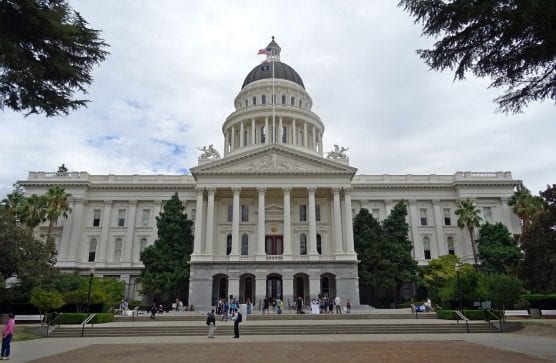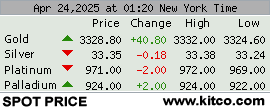SACRAMENTO — Scheming for budget relief for a COVID-19-induced recession, California lawmakers are turning to the state’s cache of millionaires and billionaires.
Back from an extended summer recess, a group of influential Democratic lawmakers are rushing to raise taxes on California’s wealthiest earners before an Aug. 31 deadline. They claim hiking what is already the nation’s highest state tax rate for millionaires will immediately line the state’s depleted coffers with a multibillion-dollar boost.
With historic unemployment rates and strained local governments struggling to provide services, Assemblymember Miguel Santiago says the rich can afford to pick up the slack.
“We’re going to ask those Californians who are doing very well to pay their fair share,” said Santiago, D-Los Angeles.
A group of Democrats from both chambers conceived Assembly Bill 1253 last month while the Legislature was on recess, debuting it Monday before a Senate finance committee.
The proposal calls for a tiered tax increase on annual incomes over $1 million, $2 million and $5 million, with the first bracket paying an additional 1%, second 3% and the highest a 3.5% hike. The authors predict AB 1253 would pull $6-8 billion in new taxes from the top 0.5% of California taxpayers, which already contribute 40% of the state’s income tax haul.
If approved, the income tax rate for Californians making over $5 million would jump from 13.3% to 16.8%. The states with the highest personal income tax rate after California are Hawaii at 11% and Oregon 9.9%.
California’s list of top earners is dominated by tech industry titans like Larry Ellison, Mark Zuckerberg, Larry Page and Elon Musk, who have an estimated combined net worth of nearly $200 billion.
More than a dozen Democrats have signed on as co-authors, including Assemblymembers Lorena Gonzalez, D-San Diego, Mark Stone, D-Santa Cruz, along with Senators Nancy Skinner, D-Berkeley, Scott Wiener, D-San Francisco. As currently written, the bill would be retroactive to Jan. 1 and the tax increase would become permanent.
Lawmakers are scrambling to buffer the blow of the recently passed budget, which included major cuts for education and a variety of social programs. While Democrats are hoping for more federal relief to backfill the cuts, they are proposing myriad options to fill the state’s estimated $54 billion deficit.
Last week Democratic leaders endorsed a sweeping $100 billion package that expands unemployment insurance, eviction and foreclosure protections and small business relief. Unlike AB 1253, proponents of the package say they can drum up the cash without raising taxes.
But the millionaire tax hike faces a tougher path than the broader $100 billion package, as it requires two-thirds approval in both the Senate and Assembly. Democrats hold supermajorities in both bodies, but Monday’s hearing indicated they won’t be able to count on much, if any Republican support.
State Sen. John Moorlach, R-Orange County, said he was concerned the bill would encourage wealthy Californians to head for neighboring states with lower income taxes and disputed whether it could actually produce a $6-8 billion haul. He claimed a similar effort in Connecticut didn’t provide the intended budgetary aid.
“If you have people move, it gets real interesting,” said Moorlach, formerly Orange County’s treasurer-tax collector.
Rather than a surefire win for cash-strapped schools and local governments, critics argue raising taxes during a recession could lead to a mass exodus of the state’s richest residents and business owners.
The California Chamber of Commerce has listed AB 1253 on its “Job Killer List,” claiming the higher tax rate could make the state less attractive for businesses looking to relocate.
“At a time when the state and country are in an economic freefall, AB 1253would hurt California businesses, employees and consumers and encourage residents to leave this state, along with their tax revenue,” the chamber wrote in an opposition letter. “The bill will depress business growth and state revenue in California and amplify an already historic crisis.”
To counter the business group’s opposition, the Democrats have courted a deep bench of supporters, including labor unions, educators and environmental groups. California Federation of Teachers, Service Employees International Union California and Sierra Club submitted support letters ahead of Monday’s hearing.
Wiener, who sits on the committee, said past tax increases aimed at California millionaires didn’t prevent the state from building the world’s fifth largest economy pre-Covid-19. Besides, Wiener noted, the tax breaks approved by President Donald Trump have greatly benefited wealthy residents and business owners.
“I just don’t buy into this notion that the sky is going to fall if we make this tax change, particularly given what Trump, McConnell and company rammed through Congress a few years ago,” Wiener said.
The committee spent more than an hour discussing the potential tax hike but did not ultimately vote on the bill. However, Santiago’s measure is still alive and could be taken up by the Senate later this month.
The proponents pointed to a recent report estimating the collective wealth of California’s 154 billionaires has swelled $175 billion during the pandemic as proof that the Golden State’s income equality gap continues to grow.
“The rich are now piling up income they cannot spend, therefore an extra tax would not cut their spending,” testified Emmanuel Saez, director of the Center for Equitable Growth at the University of California, Berkeley.
— By Nick Cahill, CNS
Like this:
Like Loading...
Related





 Tweet This
Tweet This Facebook
Facebook Digg This
Digg This Bookmark
Bookmark Stumble
Stumble RSS
RSS




























REAL NAMES ONLY: All posters must use their real individual or business name. This applies equally to Twitter account holders who use a nickname.
0 Comments
You can be the first one to leave a comment.